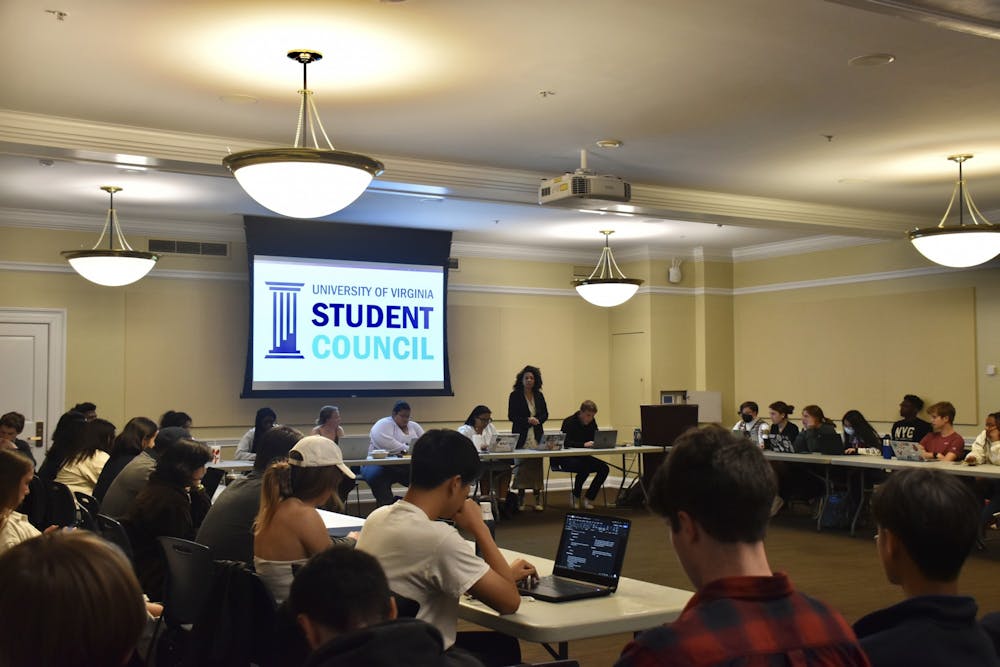After two weeks of debate, Student Council passed a resolution calling for the implementation of a PILOT — Payment in Lieu of Taxes — program between the University of Virginia and the City of Charlottesville at their meeting Tuesday. Under the program, the University would pay the city a portion of the value of its property tax exemption for the City to invest in public schools and affordable housing projects in Charlottesville.
The University is a non-profit organization and therefore does not pay property taxes — a value of roughly $15 million based on the nearly 2,000 acres that the University encompasses. This specific piece of legislation represents a call to the University from Student Council for an annual commitment of at least $10 million dollars towards the city of Charlottesville by 2030.
SR 23-04 — sponsored by third-year College Rep. Andreas Masiakos — would implement a PILOT program similar to ones found at Harvard and Yale. Masiakos said he was inspired by a talk from City Councilman Michael Payne for a PILOT program in Charlottesville during a visit to a University class last semester — Payne has previously talked about his vision for a PILOT program.
In Tuesday's meeting, Masiakos provided clarifying amendments to the resolution. One specified that the money would be spent by the city on public schools and affordable housing projects. Another specified that the money should come from a reallocation of existing discretionary funds, meaning student tuition would not increase as a result of the program.
Masiakos sees this program as an opportunity for the University to directly benefit the City.
“I feel passionate about ways that the City can provide for its citizens,” Masiakos said. “I feel that this is a good way for the university to support the City as they do that.”
This bill was originally tabled following debate and discussion over the allocation of the funds during Student Council’s General Body meeting on Feb. 7. After last week’s debate, Ceci Cain, Student Council president and graduate student said that the representative body should be listening to the Charlottesville community..
“There are a lot of stakeholder voices within our student community,” Cain said, “There are so many [voices] within Charlottesville and I would hope to see students connect and engage with groups that have been doing affordable housing work in groups that have been historically displaced by the University.”
After the discussion, Masiakos said he spent the week working to clarify specifics in the resolution, including exactly where he envisioned the money being spent. providing more clarification with regard to the contents of the resolution.
Money from the program would in part go toward supporting affordable housing in the City, which currently presents a pressing issue in Charlottesville. $1,500 a month in Charlottesville can get a renter around 1,000 square feet — a rate equivalent to that of much more populous cities such as Las Vegas and New Orleans. This issue disproportionately affects low-income Black and Hispanic households.
Money from the program would also benefit Charlottesville public schools. The city’s current budget prevents the City from making some necessary construction updates to public school buildings. Further, an increase in students who speak English as their second language requires the city to hire more teachers to address more students’ needs.
The resolution passed with 22 yeas, 1 nay and 1 abstention — third-year College Rep. Nick Cabrera voted no and first-year College Rep. Noelle Koo abstained.
Passage of the resolution merely represents support of an eventual PILOT program from Student Council — further steps require action from the University, Charlottesville and state legislators.
The Student Council general body meets Tuesdays at 6:30 p.m. in the Newcomb Hall South Meeting Room.







